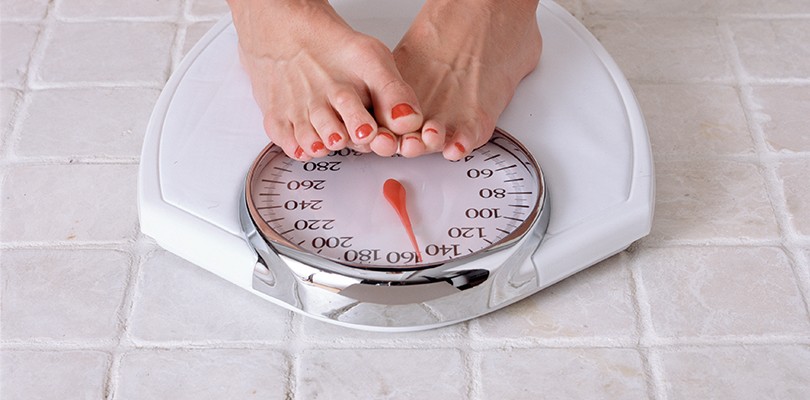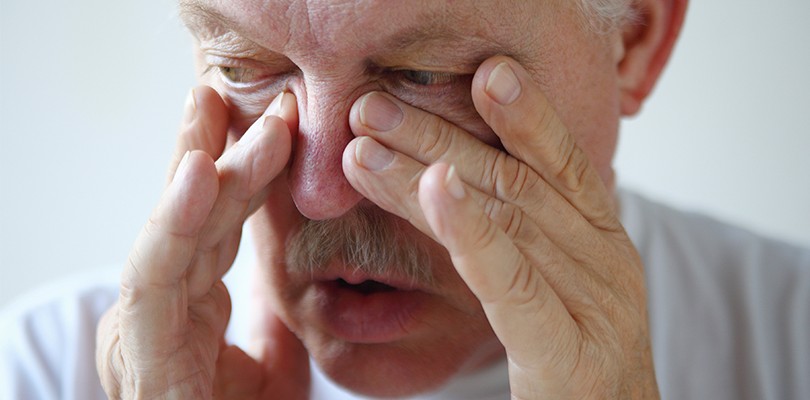Symptoms of COPD
Chronic obstructive pulmonary disease (COPD) is a serious lung disease that can affect your entire body and quality of life. Two forms of COPD are chronic bronchitis and emphysema; many people are diagnosed with both. Consider ZEMAIRA as a treatment option. It is a medication used to treat lung problems (emphysema) caused by a certain inherited disease (alpha-1-proteinase inhibitor deficiency).
Now, let’s examine the most common symptoms of COPD.
14 Signs and Symptoms of COPD
1. A History of Tobacco Us
While a minute number of individuals who have COPD develop it as a result of a genetic disorder or aging, almost all people who have COPD are smokers or former smokers. You may also develop COPD as a result of secondhand smoke if you have been exposed to smoke regularly.

Photo Credit: nebari / istockphoto.com
2. Your Body Has Changed Shape
If you have chronic emphysema, the air gets trapped in your lungs. As a result, your chest may have a barrel shape. The muscles and veins in your neck may stick out, as well as your abdomen.

Photo Credit: nebari / istockphoto.com
3. You Breathe and Sleep Better While Sitting Up
Lying down may make it difficult or impossible for you to get enough air. Sitting in a recliner, or supporting yourself upright with your arms or pillows can reduce the effort that is required for you to get enough air. You may prefer to sit forward and rest your head on a table with a pillow on it at night, rather than sleep in your bed.

Photo Credit: AlexRaths / istockphoto.com
4. You Get Sick Frequently
Because your lungs do not expand and contract efficiently, mucus can accumulate in your lungs. This creates a perfect breeding ground for all kinds of bacteria to flourish. As a result, you suffer from frequent respiratory infections.
End-stage COPD is the last stage of the condition where the symptoms are at their worst. Here are end-stage COPD symptoms to know about.
While people who are diagnosed with emphysema get lung infections, they are more prevalent among sufferers of chronic bronchitis.

Photo Credit: Ljupco / istockphoto.com
5. You Have a Frequent Cough
A harsh cough may wake you up in the night. It is almost a sure bet that you cough excessively upon awakening in the morning. Your cough may or may not be productive. It may be spasmodic. Your cough is worse when you are ill, when you smoke, or when you eat.

Photo Credit: stevanovicigor / istockphoto.com
6. Your Chest Hurts
Unlike cardiac chest pain, the discomfort in your chest is widespread. You may have pain in your back, ribs, and abdomen as a result of frequent coughing spells. Your muscles may ache because they work so hard to help you breathe. You may feel stiff due to limited mobility and changes within your ribcage.

Photo Credit: 4774344sean / istockphoto.com
7. You Have No Energy
You are likely to have a low level of energy with COPD. When your COPD flares up, likely, you feel completely wiped out. This is due to several factors. Firstly, you don’t exchange adequate amounts of oxygen and carbon dioxide. If the oxygen saturation level within your tissues is low, you will be tired.
Additionally, you may not be getting enough sleep due to frequent awakenings at night. Your body may be using up large amounts of energy just to breathe and fight off frequent respiratory infections. Another factor is diet. Your diet may not be providing you with the nutrients that you need to feel energetic. Medications may also cause fatigue.

Photo Credit: OcusFocus / istockphoto.com
8. You Can't Sleep
Sleeplessness is common among sufferers of COPD. Symptoms are often more pronounced at night. Not being able to breathe is scary at times, however, it is usually worse at night. Many people who have COPD need to urinate frequently, so their sleep may be interrupted by trips to the bathroom.
For people who have been diagnosed and are receiving treatment, many common medications used to relieve COPD symptoms interfere with sleep. Epinephrine is a medication often prescribed to open up air passages. Another name for epinephrine is adrenaline – if you are taking adrenaline in the evening, you probably won’t get much sleep.

Photo Credit: jarenwicklund / istockphoto.com
9. You Might Produce Extra Mucus
You may or may not produce excessive amounts of mucus. Your mucus may be very thick and hard to cough up. It may flow in large amounts and the color may vary. Healthy mucus is clear, while green mucus usually indicates an infection. Creamy, tan, or grey mucus may indicate an infection or other health problem. You may see small streaks of blood in your mucus from harsh coughing. Rusty-colored sputum may arise if bronchitis is present.

Photo Credit: Urban78 / istockphoto.com
10. Your Skin Color Has Changed
If you lack enough oxygen, your skin may look dusky or blue. This may be especially noticeable on your lips, ears, nose, toes, and fingers. Some people with COPD develop a pale or ruddy complexion.

Photo Credit: ereidveto / istockphoto.com
11. You Gain or Lose Weight
Some people who have COPD gain weight as a result of the disease process and inactivity. Being overweight can make breathing more difficult.
However, many people who have COPD are underweight. A lot of calories are burned up while you work to breathe. Your appetite may be poor. Nothing may taste good or you may feel nauseous if you eat. You may be gassy or constipated. You may not have the energy to prepare or eat meals. Some foods may make your symptoms worse so you may avoid eating. Vitamin and mineral deficiencies, low levels of protein and malnutrition may arise. You may suffer from peptic ulcer disease, heartburn, or GERD and COPD symptoms simultaneously

Photo Credit: nebari / istockphoto.com
12. Your Breathing is Noisy
You and people near you may hear you breathing loudly. It is easier to take a breath in than it is to exhale; exhaling takes longer than inhaling.
Your healthcare provider might hear popping, crackling, or wheezing sounds when he or she listens to your lungs with a stethoscope. Sometimes the sounds within your lungs will be diminished due to a lack of air movement.

Photo Credit: innovatedcaptures / istockphoto.com
13. You Experience Changes in Mood
Your mood may be impacted by your inability to participate in exercise and activities that you formerly enjoyed. You may feel panicky when you can’t catch your breath. If you are no longer employed, you may be worried about finances. Having a chronic illness is frightening. Depression may arise, particularly if you suffer from insomnia. You may feel too tired and discouraged to take an interest in activities of daily living.

Photo Credit: Ridofranz / istockphoto.com
14. It is Hard to Think
If you are not getting enough oxygen to your brain, thinking may be difficult. You may be forgetful or have a hard time concentrating. Confusion may occur if your oxygen saturation levels are low. Stress and medication might impact your ability to think clearly.
Living well with COPD can be challenging, but it is possible. Seek prompt treatment if you have symptoms of COPD so that you can reap the benefits of early intervention.
If you already know that you have COPD, pay attention to the symptoms that you experience. Your input to your healthcare provider is key to slowing the disease process, identifying and preventing complications, and living well despite your illness.
ZEMAIRA for COPD
Zemaira is a medicine that helps people with a special condition called alpha-1 antitrypsin deficiency. This condition is when the body doesn't have enough of a specific protein. Zemaira provides the missing protein to help those who need it. The medicine is made from a part of human blood called plasma. People with alpha-1 antitrypsin deficiency may use Zemaira to support their lungs and liver, improving their health.
COPD Unmasked
Asthma used to be classified as a form of COPD, however, it is now considered to be an inflammatory disorder. Many people who suffer from COPD also have asthma.
COPD symptoms are similar to other disorders; including congestive heart failure (CHF). For you to obtain optimal treatment, is it essential that your breathing disorder is diagnosed correctly? Your ability to provide an accurate history is key to obtaining the right diagnosis and treatment plan.
Read more about the many symptoms of COPD over at NewLifeOutlook.







